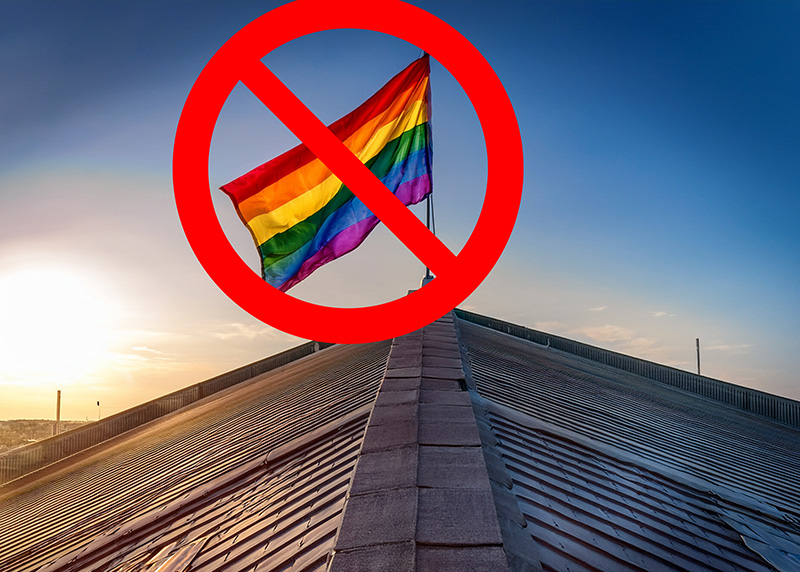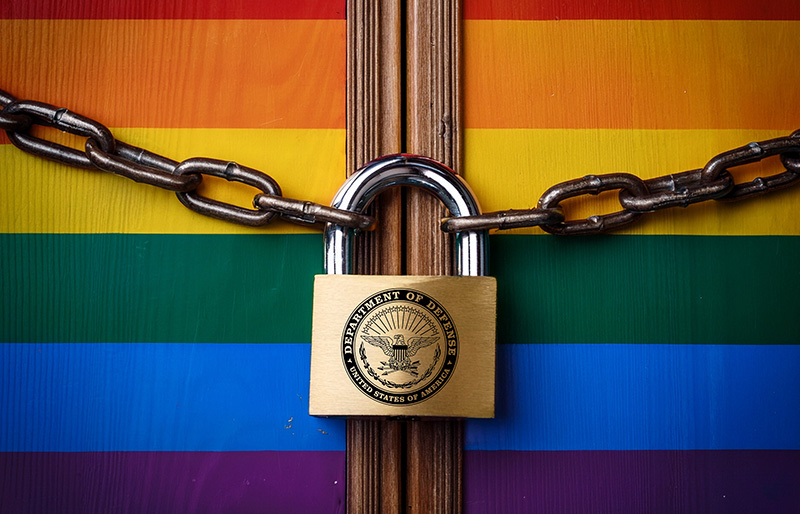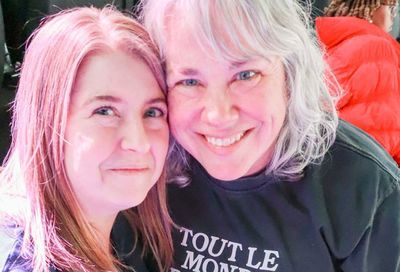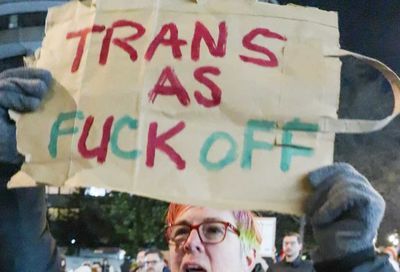Glenn Youngkin Believes Schools Should Out LGBTQ Students to their Parents
Advocates say outing harms parent-child relationships and put LGBTQ youth at risk of familial rejection and homelessness.

Virginia Gov. Glenn Youngkin has said that he believes parents have the right to be notified about what’s happening in their children’s lives, including whether their children identify as gay and transgender — even if they aren’t ready to come out.
Asked by D.C.-based ABC affiliate WJLA about current policies — adopted by school districts in more liberal jurisdictions in the commonwealth — that prevent teachers from informing parents about their children’s LGBTQ identities without the student’s express permission, Youngkin said that parents “should be informed on all aspects of their children’s lives.”
Youngkin largely regurgitated sound bytes and talking points from his 2021 run for governor, when he rode a wave of discontent, stemming partially from prolonged school closures and extended virtual learning during the COVID-19 pandemic, over curriculum content, especially regarding racial or LGBTQ issues, and the perceived lack of engagement with parents on issues affecting their children.
“With regards to informing parents with most important decisions about their children, I think everybody knows where I stand, parents matter,” Youngkin said. “Parents should be at the forefront of all of these discussions. And I firmly believe that teachers and schools have an obligation to make sure that parents are well informed about what’s happening in their kids’ lives. And one of the things we learned last year during the campaign is that parents were tired of being pushed to the background in their child’s education.”
But LGBTQ advocates argue that Youngkin’s talking points miss the mark, and that the governor has not thought out all the potential implications of “outing” children to their parents.
For example, advocates say that “outing” can potentially damage relationships between parents and children, and lead to distrust of school officials — especially if those officials were approached by a student in confidence.
Advocates also say that outing, in the long term, may harm the mental well-being of some students, who may choose to keep quiet about their struggles with their identity, out of fear that administrators and teachers will inform on them to their parents. In more extreme cases, notifying a parent of a student’s LGBTQ identity could lead to emotional or physical abuse, or even death, at the hands of intolerant parents.
The Pride Liberation Project, a student-run group of more than 200 members who advocate on behalf of LGBTQ students’ rights in Virginia schools, denounced Youngkin’s comments as undermining the safety of LGBTQ students by requiring school personnel inform on them to their parents, .
“Familial rejection rate are incredibly high in the LGBTQIA+ community. According to the Human Rights Campaign, only 25% of LGBTQIA+ youth are able to be out in their homes, and 67% of LGBTQ youth hear their families make negative comments about LGBTQ people,” the group said in a statement. “Consequently, countless students rely on privacy protections to access critical support structures at schools, including affirming staff members, mental health support, and accepting clubs.
“Repealing these privacy protections will remove one of the few inclusive spaces for many Queer students and endanger unsupported LGBTQIA+ students. Without privacy protections, many Queer students will be unable to access affirming resources, while others will experience homelessness, given the disproportionate impact familial rejection has on youth homelessness.
“It is unimaginably cruel that Governor Youngkin would politicize the safety of students across Virginia,” the group added. “As queer students who rely on these protections, we hope the Governor reconsiders his stance and safeguards our rights.”
“I’ve had friends who have been kicked out of their homes, denied access to financial support, and threatened with conversion therapy after their family found out they were queer,” a student and member of the coalition, whose name is being kept private to avoid outing them, said in a statement.
As governor, Youngkin gets to appoint the majority of the nine members of the Virginia Board of Education, which can issue new guidance through a rule-making process, overseen by the governor and the Attorney General’s Office, that seeks input from the public. If the Board of Education issues a rule requiring teachers to effectively “out” LGBTQ students to their parents, that would put the policies of some local school districts, including Fairfax County Public Schools and Loudoun County Public Schools, into direct conflict with the board’s recommendations.
Robert Rigby, a former teacher in Fairfax County and an LGBTQ advocate, told WJLA that Fairfax’s county protects and preserves the communication and relationship between students and parents by avoiding interference from well-intentioned but misguided teachers.
“Affirming parents and guardians have shared with me how upsetting it is to get a call from a teacher ‘revealing. a secret’ that the parent and child have already talked about,” Rigby said. “For LGBTQIA+ people a turning point in our lives is talking to our parents and family about this very personal matter. No one, including school staff, should take this crucial discussion of ‘coming out’ away from the students and parents by ‘outing’ someone. It feels and is really intrusive and can be damaging to the parent/child relationship, sometimes permanently.”
Youngkin’s remarks come as the Department of Education, which is slated to meet this week, is in the process of developing a policy requiring schools to notify parents of “sexually explicit materials” in schools. The policy was developed as a result of a law passed by the Republican-led House of Delegates and the Republicans and two Democrats — Lynwood Lewis (D-Accomac) and Monty Mason (D-Newport News) — in the Virginia Senate.
LGBTQ advocates have said, however, that while notifying parents of sexually explicit content is generally not considered objectionable, Virginia has laws still on the books — relics of a time when the state criminalized and prosecuted same-sex relations — that inaccurately and unfairly define the mere existence of homosexuality as inherently “sexual conduct,” rather than an orientation.
As a result, LGBTQ groups fear that — without an explicit promise not to define speaking about homosexuality — such as in a health or sex ed class, when discussing historical events or figures, from Alan Turing to Bayard Rustin to the Stonewall Riots — as “sexually explicit,” Youngkin’s conservative appointees to state’s Board of Education will intentionally interpret the law as requiring schools to ban all discussions of LGBTQ-related topics. This would, in essence, have the same effect as passing a “Don’t Say Gay”-style policy in all Virginia schools.
Support Metro Weekly’s Journalism
These are challenging times for news organizations. And yet it’s crucial we stay active and provide vital resources and information to both our local readers and the world. So won’t you please take a moment and consider supporting Metro Weekly with a membership? For as little as $5 a month, you can help ensure Metro Weekly magazine and MetroWeekly.com remain free, viable resources as we provide the best, most diverse, culturally-resonant LGBTQ coverage in both the D.C. region and around the world. Memberships come with exclusive perks and discounts, your own personal digital delivery of each week’s magazine (and an archive), access to our Member's Lounge when it launches this fall, and exclusive members-only items like Metro Weekly Membership Mugs and Tote Bags! Check out all our membership levels here and please join us today!


























You must be logged in to post a comment.